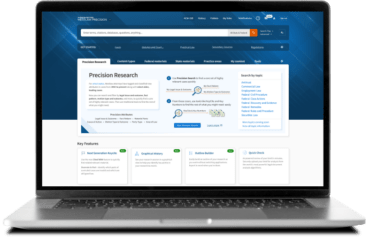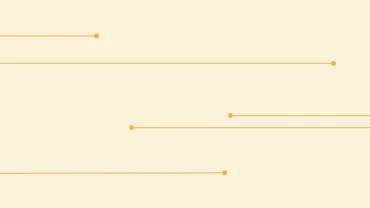How to find legal cases and search by judge on Westlaw
Need to find cases by a specific judge or that involve a particular entity? Even for more narrow searches, it is best to start with the global search box on Westlaw. Simply type in a query on the home page to run your search and then use one of the many available filters to find a specific judge or party by name. Keep reading to learn more about the specific search features available on Westlaw Precision plus step-by-step instructions on how to search by judge.
Jump to ↓
| When is it relevant to find a case by judge? |
| The importance of having relevant information about your judge |
| How can I find legal cases by judge or entity in Westlaw? |

AI news and insights
Industry-leading insights, updates, and all things AI @ Thomson Reuters
Join community ↗When is it relevant to find a case by judge?
It is crucial to your case to know as much as possible about your judge and any past rulings that are relevant to your case up front. For example, understanding the judge’s familiarity with the context of your case, if they have handled similar cases in the past, and what opinions they have written on this particular subject matter can help you build a stronger case.
Additionally, it is important to investigate past rulings and to understand which way a judge typically leans on related matters. It is also nice to know how long a judge typically takes to rule on a case so you can manage costs and your clients’ expectations. Litigation Analytics on Westlaw Precision enables you to build the strongest case strategy possible by providing the most insight on a judge’s outcomes, time to rule, and more.
The importance of having relevant information about your judge
Knowing as much as possible about a judge’s background helps you prepare more efficiently and effectively – allowing you to maximize your time while preparing for a case and while in court. For example, if you learn that a judge has been involved in similar cases, you don’t need to spend a lot of time preparing extensive background information. This allows you to devote the majority of your time and energy into building and devising a sound argument.

CoCounsel
Bringing together generative AI, trusted content and expert insights
Meet your legal AI assistant ↗As you build your case, knowing how a judge ruled in past similar cases can be invaluable. A judge’s response to an argument could very well mirror that of a prior case. For example, in an equal pay action, a judge may have previously been persuaded by a defendant’s argument that while some males in similar positions receive higher pay than their female colleagues, some also receive lower pay. And understanding which arguments resonate with a judge helps you develop a legal strategy that is more likely to result in a favorable ruling for your client.
How can I find legal cases by judge or entity in Westlaw?
To ensure that you are exhausting all legal research options, you can run a field search on Westlaw. Field searching allows you to look for specific terms in a particular part of a document – the title or author fields, for example. Field searching is incorporated into Westlaw through the Advanced templates that are linked at the top of the page and to the right of the search bar.
Keep in mind that the available fields will depend on the type of document. For example, the judge field is only available when searching caselaw or trial court orders. Let’s walk through the steps you would follow to search by judge.
- Click into either Cases or Trial Court Orders from the Westlaw homepage. Then select the Advanced link to the right of the search bar to go to the template.
- Under Document Fields, type the full name of the judge you’re searching for into the appropriate box.
- Check the search bar to make sure that the query has populated correctly and run the search by clicking the orange magnifying glass.
- To ensure you’re maximizing all of Westlaw’s search capabilities to the fullest, remember that your subscription provides access to Reference Attorneys who are available to help anytime.













